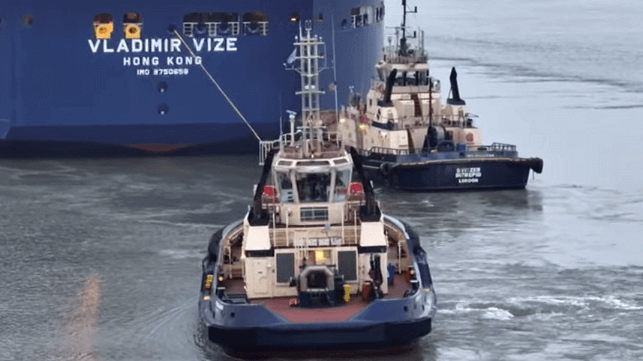Svitzer Goes Global With Carbon-Offset Towage Service

Svitzer has expanded the availability of its carbon-offset towage program worldwide through a partnership with PortsDirect, a port-services contract management provider.
Svitzer runs 10 harbor tugs on 100-percent biofuel at the ports of London and Medway. The fuel is hydrogenated vegetable oil (HVO) made from used cooking oil and other waste feedstocks, and it does not require edible oils to produce. Svitzer reports that it is 90 percent carbon-neutral on a well-to-wake basis (compared with conventional marine fuels).
This specialized fuel solution works well in the UK, and it has had a "fantastic" reception, according to Svitzer. However, London/Medway is just one market for the worldwide towage operator, and the specialized HVO fuel source is not available in far-flung ports overseas. Instead, Svitzer can sell carbon-offset certificates to its customers in other ports, giving them credit for the operation of its UK-based, carbon-neutral tugs. Through the PortsDirect platform, Svitzer will offer these offset certificates to a community of 250 shipowners and operators.

that matters most
Get the latest maritime news delivered to your inbox daily.
Working with an independent auditor, Svitzer will create a CO2 savings certificate that complies with the requirements of regulatory authorities. By selecting Svitzer's "EcoTow" service through PortsDirect, shipping customers will be able to reduce their Scope 3 emissions (the GHG emissions from each company's supply chain).
“Our customers recognize the importance of reducing their CO2 emissions and supporting the rest of the industry in meeting shipping’s decarbonisation pathway and targets," said Kenny Bjergstad, the managing director for PortsDirect. "The entire supply chain is under scrutiny for where efficiency gains can be made and our partnership with Svitzer provides our customers with the opportunity to address and further improve their Scope 3 emissions within the port environment."
